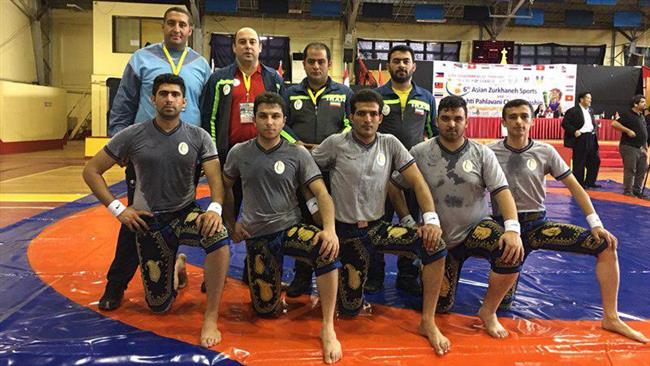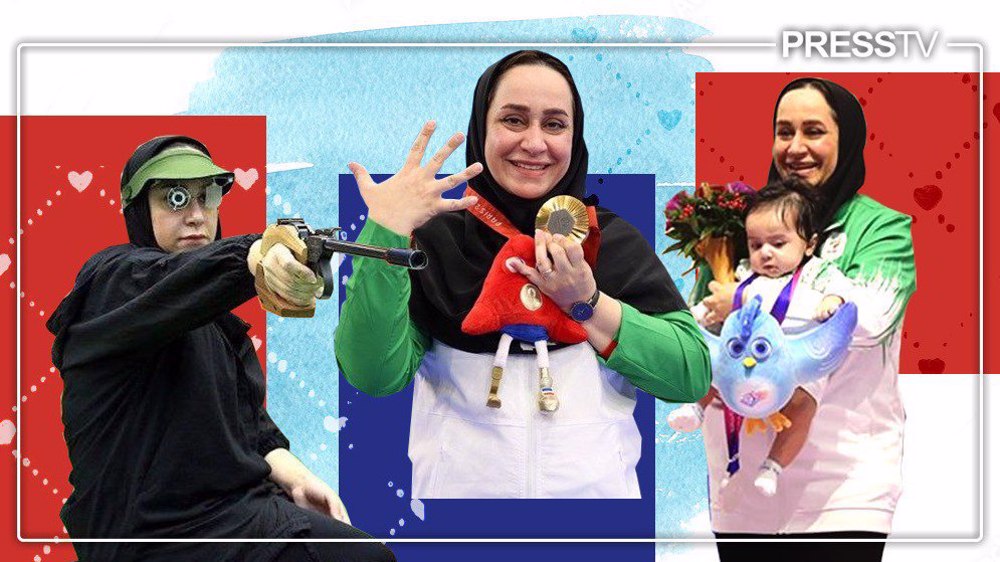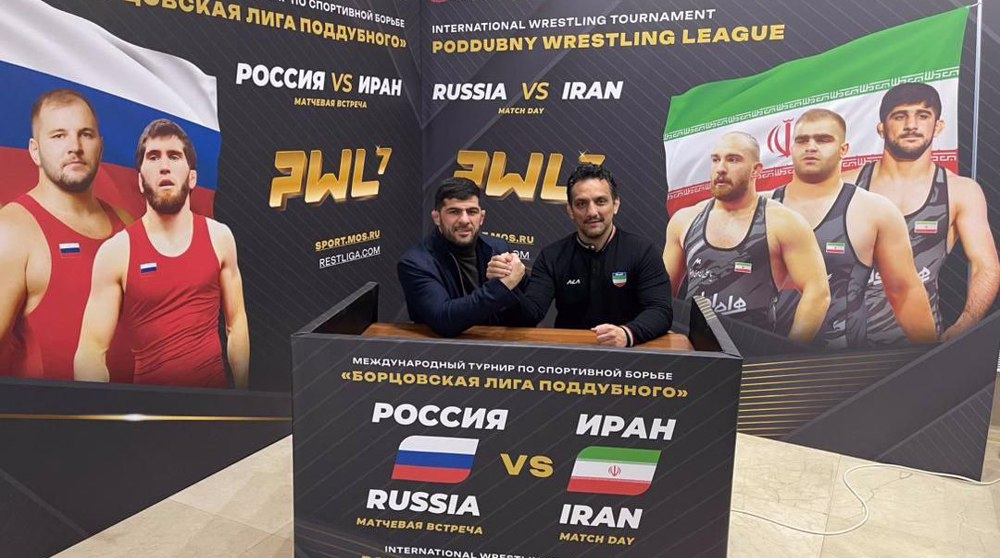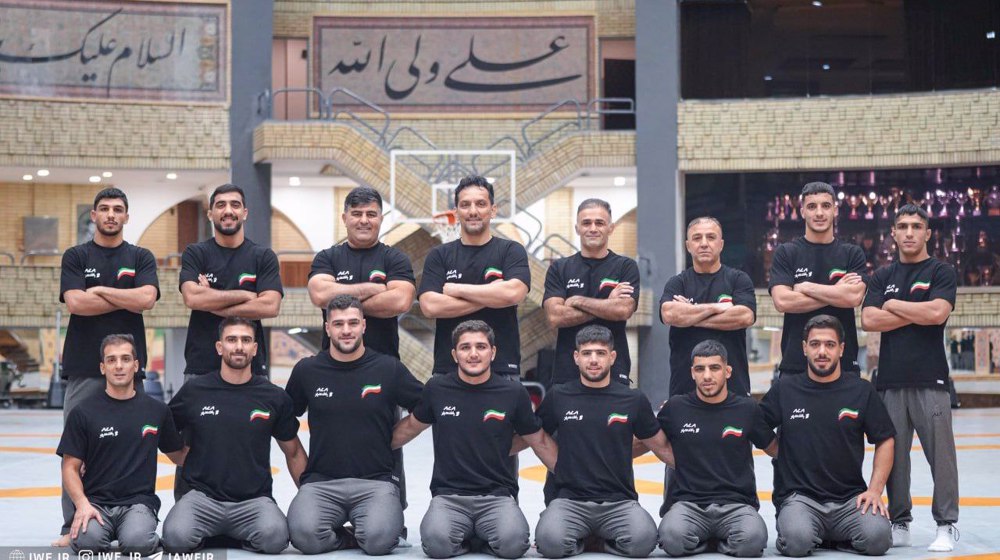Iran crowned in Asian Zurkhaneh Sports & Koshti Pahlavani Championship
Iranian zurkhaneh practitioners have demonstrated great displays of physical strength and athletic skills at the sixth edition of Asian Zurkhaneh Sports & Koshti Pahlevani Championship, and lifted the trophy.
The Iranian team claimed a gold medal in team event of the competitions in the City of Tanauan, the Philippines, besides five gold ones out of six in individual contests.
In the meel bazi division of zurkhaneh, Hamidreza Kordi scored 617 points and topped the podium. A representative from Iraq picked up the silver medal with 466 points. Competitors from the Philippines and Nepal jointly received the bronze.
Iran’s Amin Shahriari won the gold in heavy meel with 2,610 points. An Iraqi athlete bagged the silver with 1,931 points.
Tajik and South Korean contestants shared the bronze medal.
Iran’s Farid Amini beat his Iraqi rival in sang event final, and snatched the gold medal. Representatives from Tajikistan and India took the bronze medal.
Ali Jalijoo received the gold medal in charkhe teez competitions with 549 points. His Iraqi opponent finished second and snatched the silver with 315 points. Sportsmen from the Philippines and Singapore won the bronze medal.
In the charkhi chamani, the gold medal went to Jalal Salehi from Iran. He came first with 1088 points, while his Iraqi rival finished in second place with 334 points.
The Nepalese and athlete from the Philippines both stood in third place.
Jaber Sabri from Iran stole the show in the kabbadeh contests, and clinched the gold medal with 606 points. His compatriot, Kordi, accumulated 305 points and claimed the silver.
The athletes from Nepal and India won the bronze.
Iranian Pahlavani wrestlers also got two gold, two silver and one bronze medals.
Pahlavani wrestling goes back to ancient Persia, and was originally used to train warriors.
It combines martial arts and wrestling techniques, calisthenics, strength training and epic music.
The two competitors try to take control over each other by throwing the opposite combatant back on his shoulder.
The wrestler is allowed to grab his opponent’s pants or belt as a grip. He can also use his or own legs to off-balance a rival, hence causing him to fall to the ground.
The United Nations Educational, Scientific and Cultural Organization (UNESCO) has recognized Pahlavani wrestling as among the world's longest-running forms of sport.
VIDEO | Iran-Syria: For Resistance
Qassam Brigades claims killing 3 Israeli troops in northern Gaza
More alive than ever: Sayyed Hassan Nasrallah's legacy grows stronger in martyrdom
Occupation of Syria’s highest peak Mount Hermon part of ‘Greater Israel’ project
Iran: Syrian people will decide their future without foreign interference
IRGC says Iran’s power exceeds borders, warns enemies to adjust themselves
Dozens detained, several wounded in Israeli raids in West Bank
‘Ethnic cleansing’: Hamas blasts Israeli attacks on Gaza hospital amid intl. silence















 This makes it easy to access the Press TV website
This makes it easy to access the Press TV website